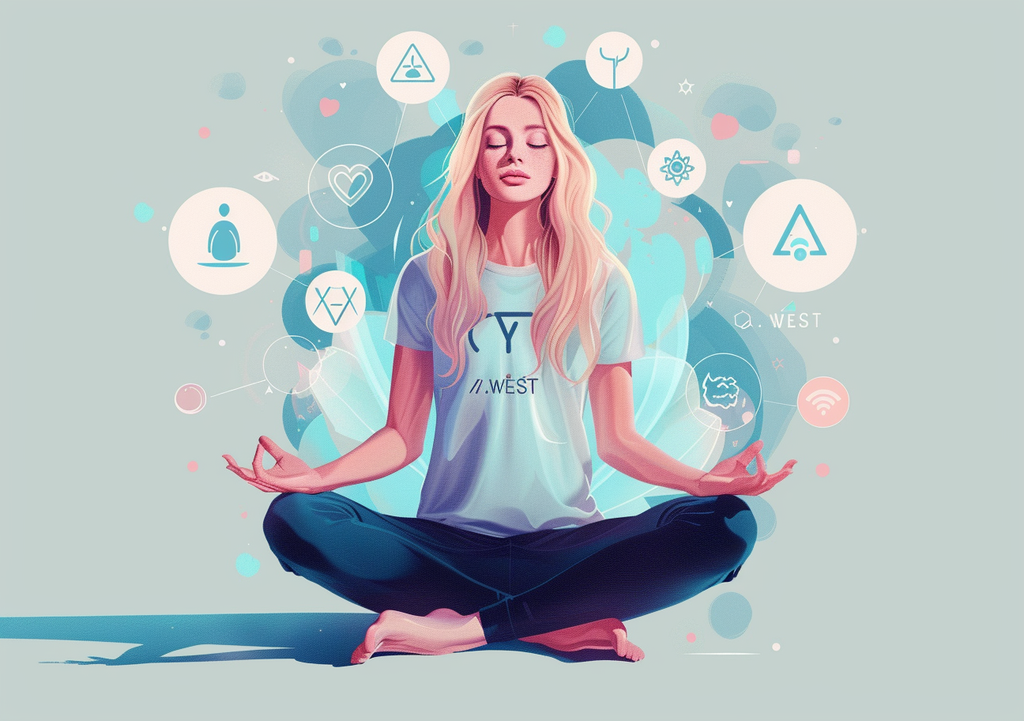Anxiety is a normal and often healthy emotion. But, when a person regularly feels disproportionate levels of anxiety, it might become a medical disorder. Anxiety disorders lead to excessive nervousness, fear, apprehension, and worry. These disorders alter how a person processes emotions and behaves, also causing physical symptoms.
Key Takeaways
| What are some natural remedies for anxiety? | Herbal teas like chamomile and lemon balm, ashwagandha, and L-theanine supplements. |
|---|---|
| What are some relaxation techniques for anxiety? | Deep breathing exercises, progressive muscle relaxation, meditation, and yoga. |
| What lifestyle changes can help with anxiety? | Regular exercise, healthy sleep habits, a balanced diet, and limiting caffeine and alcohol intake. |
| When to seek professional help? | If anxiety interferes with daily life, professional diagnosis and treatment are crucial. |

Understanding Anxiety
Anxiety manifests in various ways, including:
- Racing thoughts
- Excessive worry
- Restlessness
- Irritability
- Muscle tension
- Fatigue
- Difficulty concentrating
- Trouble sleeping
These symptoms can significantly impact daily functioning.
Natural Approaches to Anxiety Management
Here's a breakdown of effective natural strategies for managing anxiety:
Herbal Remedies:-
Chamomile and Lemon Balm: These calming herbs, traditionally used as teas, possess properties that promote relaxation and ease anxiety symptoms.
-
Ashwagandha: This adaptogenic herb helps the body adapt to stress and can reduce anxiety and improve sleep quality.
-
L-theanine: Found in green tea, L-theanine promotes relaxation by increasing the production of calming brain chemicals.
-
Valerian Root: Valerian is a perennial flower that is native to Europe and parts of Asia. Valerian root is commonly used as a natural treatment for symptoms of anxiety, depression, and menopause.
- Lavender: Lavender is believed to affect the limbic system, the part of the brain that controls emotions, making it an effective treatment for anxiety.
-
Deep Breathing Exercises: Taking slow, deep breaths activates the relaxation response, counteracting the fight-or-flight response triggered by anxiety.
-
Progressive Muscle Relaxation: This technique involves tensing and relaxing different muscle groups, promoting relaxation and reducing tension headaches, a common anxiety symptom.
-
Meditation: Mindfulness meditation helps focus on the present moment, quieting the mind and reducing anxiety-provoking thoughts.
- Yoga: Combining physical postures, breathing exercises, and meditation, yoga promotes relaxation and reduces stress and anxiety.
Lifestyle Changes:
-
Regular Exercise: Physical activity is a powerful tool for managing anxiety. Aim for at least 30 minutes of moderate-intensity exercise most days of the week.
-
Healthy Sleep Habits: Prioritize 7-8 hours of quality sleep each night. A consistent sleep schedule promotes relaxation and helps regulate mood.
-
Balanced Diet: Eating a balanced diet rich in fruits, vegetables, whole grains, and lean protein provides essential nutrients that support emotional well-being.
- Limit Caffeine and Alcohol: While occasional caffeine intake is okay, excessive consumption can worsen anxiety symptoms. Similarly, alcohol may provide temporary relief but can disrupt sleep and worsen anxiety in the long run.

Putting It All Together
Experiment with these natural approaches to find what works best for you. Some people find relief with a single approach, while others benefit from a combination of strategies.
Important Considerations
- It's crucial to consult with a healthcare professional before starting any new supplements, especially if you have any underlying health conditions or are taking medications.
- If your anxiety is severe or interferes with daily life, seeking professional help from a therapist or counselor is essential. They can provide guidance, support, and develop a personalized treatment plan.
Additional Tips
- Practice Gratitude: Focusing on the positive aspects of your life can shift your perspective and reduce anxiety.
- Connect with Loved Ones: Social support is crucial for emotional well-being. Spend time with supportive friends and family.
- Engage in Activities You Enjoy: Make time for hobbies and activities that bring you joy and relaxation.
- Limit Screen Time: Excessive screen time, especially before bed, can disrupt sleep and worsen anxiety symptoms.
- Consider Mindfulness Apps: Numerous apps offer guided meditations and relaxation exercises to support your anxiety management journey.

Take a look at our other articles:
Using Essential Oils for Better Sleep and Relaxation
Holistic Approaches to Managing Chronic Fatigue Syndrome (CFS)
Perimenopause: A Guide to Navigating This Transitional Phase
Addressing Common Concerns
Here are some frequently asked questions regarding natural approaches to anxiety management:
-
Are herbal remedies safe?
Always consult with a healthcare professional before starting any new supplements, especially if you have underlying health conditions or take medications. Some herbs can interact with medications.
-
How long does it take for natural approaches to work?
The effectiveness of natural approaches varies depending on the individual and the severity of anxiety. Some people experience relief within a few weeks, while others may need more time.
-
Can natural approaches replace medication?
Natural approaches can be a powerful tool for managing anxiety, but they may not be suitable for everyone. In some cases, medication may be necessary. It's crucial to discuss treatment options with a healthcare professional.
Anxiety is a common yet manageable condition. By embracing natural approaches like herbal remedies, relaxation techniques, and positive lifestyle changes, you can significantly improve your emotional well-being and cultivate a calmer, more balanced life. Remember, you are not alone in this journey. There is help and hope available.
By incorporating these tips into your daily routine, you can further enhance the effectiveness of the natural approaches discussed above.
I am committed to providing trustworthy information to empower you on your journey towards emotional well-being. This guide is regularly reviewed and updated to ensure it reflects the latest research and best practices.








